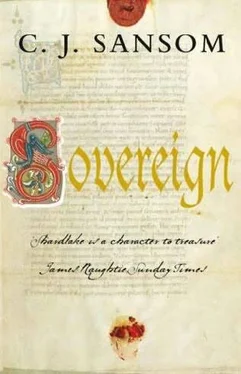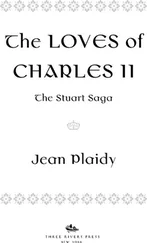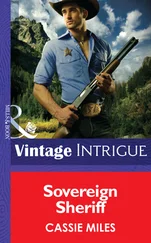‘It was hard enough getting this much. And the gold cup is a good one.’ The other man was younger, with a thin, serious face, wearing a lawyer’s robe.
‘This won’t fill it.’ The mayor looked up angrily at our entrance. ‘Jesu’s blood, Oswaldkirke, what is it now?’
The clerk bowed almost to the floor. ‘Maister Mayor, this gentleman has come from Sir William Maleverer.’
The mayor sighed, waving the clerk out, and turned protuberant eyes to me. ‘Well, sir, how can I help Sir William now?’ He pointed irritably at the piles of coins. ‘The Recorder and I are preparing the city’s present to the King for Friday.’
I introduced myself and explained my mission to investigate the glazier’s death. ‘I have been asked to deal with the matter,’ I said, ‘but wished to inform the York coroner, as a courtesy. Perhaps he may be able to give me some aid,’ I added hopefully.
The mayor frowned. ‘I knew Peter Oldroyd, he was chairman of the glaziers’ guild two years ago. The city should investigate this.’
‘If the death took place on royal property, the King’s coroner has jurisdiction,’ said the thin-faced man. He extended a hand. ‘William Tankerd, the city Recorder.’ He smiled, but eyed me curiously.
‘Matthew Shardlake, of London.’
‘God’s death,’ the mayor snapped pettishly. ‘Am I to have no authority left in my own city?’ He sighed and waved a hand at the Recorder. ‘Take them outside, Tankerd, they shouldn’t be in here with all this gold. Tell him what he needs to know, but don’t be long.’
Tankerd led us outside. ‘Forgive Mayor Hall,’ he said. ‘We have much to do before Friday. People are still throwing rubbish in the streets and they won’t clear their middens, no matter how we threaten them.’
‘I am sorry to trouble you, sir. If you could tell me where I may find the coroner…’
He shook his head. ‘I fear Maister Sykes is out of town today, holding an inquest over at the Ainsty.’
‘Then may I ask where Master Oldroyd lived? His family should be told.’ That was an aspect of my task I was not looking forward to.
‘All the glaziers live in Stonegate. It is almost opposite here, up the road from St Helen’s church. Oldroyd lived just beyond the churchyard, I believe.’
‘Thank you, sir. Then I will go there.’
He nodded, then gave me a sharp look. ‘Take care, sir. With the monasteries going down, the glaziers have lost much of their work. They are not friendly to southrons.’

ALMOST OPPOSITE THE SQUARE from the Guildhall stood an old church with fine glasswork, and a passer-by confirmed the narrow street running alongside it was Stonegate. It was bounded on one side by the ancient churchyard and the buildings were tall and narrow, overhanging eaves cutting out much of the light from the grey sky. As we walked down it we saw some houses had signs outside showing glazed windows, and I could hear tinkling and hammering from workshops behind. Halfway down Stonegate the churchyard ended. ‘Round here somewhere,’ Barak said.
I stopped a passer-by, a middle-aged man with a square face and black hair under a wide cap, and asked if he knew which was Master Oldroyd’s house.
‘Who wants t’know?’ he replied, looking at me keenly. I noticed his hands were covered in scars as Oldroyd’s had been.
‘We come from St Mary’s,’ I said. ‘I am afraid he has met with an accident.’
‘An accident? Peter?’ His face filled with concern.
‘Did you know him, sir?’
‘Of course I did, he is in my guild and a friend too. What happened, maister lawyer?’
‘He fell from his ladder early this morning while working on the monastery church. I fear he is dead.’
The man frowned. ‘Fell from his ladder?’
‘The circumstances are uncertain. We have been appointed to investigate by the King’s coroner,’ I said. ‘If you knew him, Master…’
‘Ralph Dike. I’m a master glazier, as Peter was. He was a good man.’
‘Perhaps you could tell us about Master Oldroyd. Does he have a family?’
‘His wife and three bairns all died in the plague in ’38.’ The glazier crossed himself. ‘He had only an apprentice.’
No family then, I thought with relief. Master Dike pointed to a house two doors down. ‘Peter lived there.’ He gave us a long look, then took a step away. ‘I have business now,’ he said. ‘I must tell the guild of this.’ He turned and walked hastily off.
‘He didn’t want to talk, did he?’ Barak asked.
‘I think he was suspicious of us, southerners from St Mary’s. Let’s see his house.’
The property Master Dike had pointed out needed plastering, and the paint on the front door was cracked and flaking. I knocked, but there was no reply so I took the key and turned it in the lock. As I did so Barak nudged me, nodding at a window in the house opposite. A woman’s face was quickly withdrawn. I pushed the door open.
The house was built round a central hall, like Master Wrenne’s but smaller, with a hearth in the middle and a smoke-hole in the black-raftered ceiling. The ashes of last night’s fire lay in the little grate. I noticed the plate displayed on the buffet was mostly pewter, the furnishings clean but cheap.
‘Hullo!’ I called out. ‘Anyone at home?’ There was no reply.
‘That’s odd,’ Barak said. ‘You’d expect a servant to be around, or the apprentice.’
I walked over to an inner door. It gave on to a hallway doors, and a wooden staircase leading to an upper floor. Opening the first door I found myself in the kitchen. I went to the oven; it was warm. Someone had been baking recently. Apart from faint sounds from the street, the house was silent. I crossed to the other door, which led to an enclosed yard with a gate and a furnace in an open shed in one corner. Windows of stained and painted glass mostly, with two broken, were stacked in piles against the walls. I shuddered, remembering that blood-soaked cart. I saw Oldroyd had been separating out some of the small painted panes for reuse. He had laid them on a cloth, representations of birds and animals and mythic beasts. None had religious themes. ‘It’s like he told us,’ Barak said. ‘He’s been taking the glass to reuse.’ I bent and looked down at the figures; some of them were beautiful, hundreds of years old. I wondered if they had come from St Mary’s.
Barak had gone over to the furnace. A large bucket full of pieces of glass showing monks at prayer stood beside it, for melting down no doubt. Barak touched the side of the furnace. ‘It’s cold,’ he said.
‘Let’s try upstairs.’
We went back in and climbed up to a little hallway with two more doors. I opened one; it gave on to a bedroom, empty save for a truckle bed with a straw mattress and an open trunk containing clothes and a blue cloak.
‘The apprentice’s room, perhaps,’ I said.
‘Lucky to have his own room.’
‘Poor Oldroyd may have had no other use for the room if his family all died of plague.’ I opened the other door, which led into a master bedroom. A wall-cloth in green and yellow stripes went round the whole room, leaving a gap only for the window. There was a good bed with a feather mattress and a couple of big solid trunks, carved and painted. Opening them I found a stock of clothes, neatly folded.
‘Wonder where he kept his papers,’ I said, then turned as Barak laid a hand on my arm. He held a finger to his lips for silence and nodded over his shoulder. ‘There’s someone on the stairs,’ he mouthed. ‘I heard the boards creak.’ Motioning me to stay where I was, he crept to the door, listened a moment, then threw it open. There was a shrill cry and he stepped back in, his arm round the neck of a plump lad in his early teens with a shock of red hair and an apprentice’s blue coat.
Читать дальше













